Doctor Who: Will Gompertz on the new series with Jodie Whittaker ★★★★☆
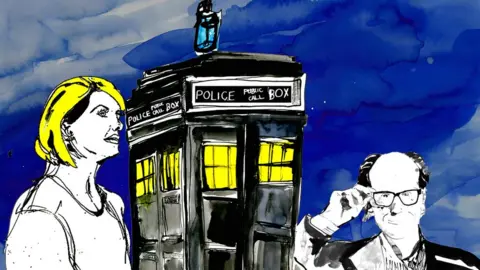 BBC
BBCRelax! Take the afternoon off. You don't have to vacuum behind the sofa. The new Doctor Who isn't that scary. It has its moments, of course, but a trip to the dentist is far worse - at least it would be if...well…
Let us not even take the smallest step down a road that might lead to a plot spoiler. Suffice it to say that in the opening episode of season 11 (starting from the 2005 re-boot) there are goodies and baddies and surprises (nice and not so nice) and some strange events and…a new Doctor.

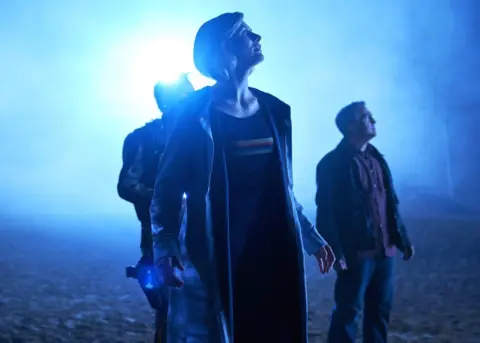

That we already know. Because it's been everywhere.
What's more we met her at the end of the last episode when Peter Capaldi regenerated into Jodie Whittaker who promptly fell out of the TARDIS and plummeted to who-knew-where.

Turns out she was heading for one of the very few places in the entire unknowable universe of potentially a gazillion planets where the inhabitants not only speak her native language, but do so in the same accent.
And so it is that the thirteenth Doctor Who gets to start her exciting stint of inter-galactic policing in present day Sheffield.
Unfortunately for her there is no time to enjoy a stroll around the city's expansive parkland, or to take in a show at the Crucible Theatre. She is thrown in at the deep end with a life-threatening crisis to help avert.
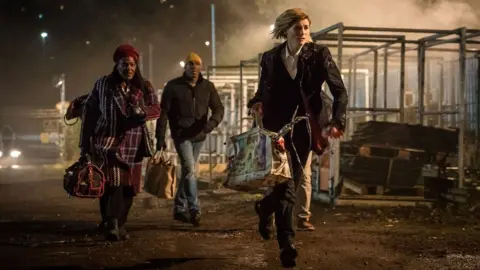
From this we quickly learn that the new Doctor is not one to panic.
No matter how serious the situation she always has a witty quip to hand to quell nerves and lighten the mood. These she delivers with puckish dry humour and perfect timing. If Capaldi's Doctor had a slightly chilly edge, Whittaker's is warmer than a mug of Yorkshire tea.
She is a very talented actor, whose down-to-earth style plays cleverly with her character's otherworldly nature, in the way, say, Roger Moore's old-school charm subverted James Bond's cold-blooded ruthlessness.
From the moment she enters the fray Jodie Whittaker completely owns the part.
Any chat about gender is rendered wholly irrelevant before she's finished her first sentence.
She is Doctor Who, and that's it - some will love her interpretation of the Time Lord, others won't.
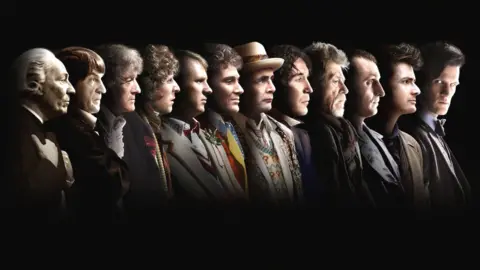
I'm in the former camp, but not without one small reservation. These are early days, she has another nine episodes to fully flesh out her version of The Doctor, but at this stage the character is a little too jolly and friendly, which makes building up dramatic tension almost impossible.
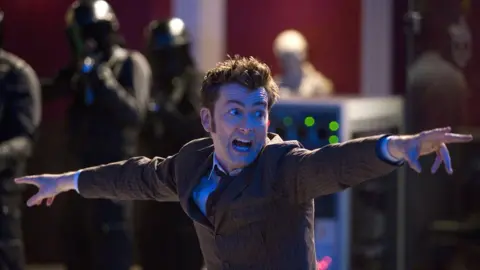
David Tennant, who strikes me as the most similar to Whittaker's take on the role, was able to change mood in an instant: from class clown to a deadly serious galaxy-saving leader.
She is yet to show that tonal transition from light to dark.
On those occasions when she does dispense with the flippant asides for a more profound thought, her Doctor tends to come across more like a Sunday-school teacher than a masterful rhetorician who can inspire and intimidate in equal measure.

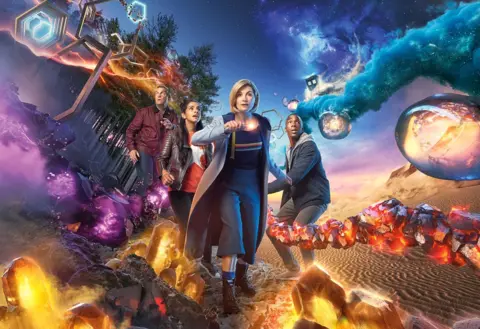 BBC/PA
BBC/PA
That might well be a case of an experienced actor slowly developing the character to draw the audience in over the course of the run. Or, it could be the way the part is being written and directed.
Doctor Who is a massive entertainment brand, which like most global products, requires constant refreshing both to enlist new customers and to keep existing punters interested. In that respect a TV franchise is no different than a Premiership football club.
It's all showbiz; new faces are imperative: they all need to regenerate.
And with that new public face almost always comes a new back-room team. As is the case with this all new Doctor Who, which sees previous show-runner Steven Moffat exit stage right, and Chris Chibnall come in to take up the reins (he worked with Whittaker on Broadchurch).
Hopefully they will turn out to be a dream team. Actually, they have to be the dream team, because imagination is the only thing that will keep Doctor Who's TARDIS on the universe's super-highway.

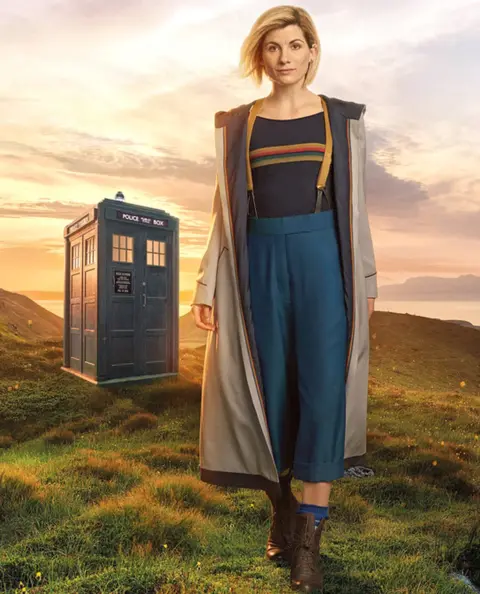

It would be good to see them challenge the concept of science fiction and push it beyond the hackneyed and obvious, in the way Charlie Brooker has re-thought the dystopian novel in the shape of his TV series Black Mirror, which focuses on 21st century concerns.
It's fine for Sci-Fi to be funny, but it should be unsettling too - and the only way to do that is to make it real: Doctor Who needs to tell us our worst nightmares, contemporary stories that are so darkly embedded in our unconscious minds we need to hide behind a sofa when they are revealed to us.
Doctor Who is on BBC One on Sunday at 18:45 BST.
